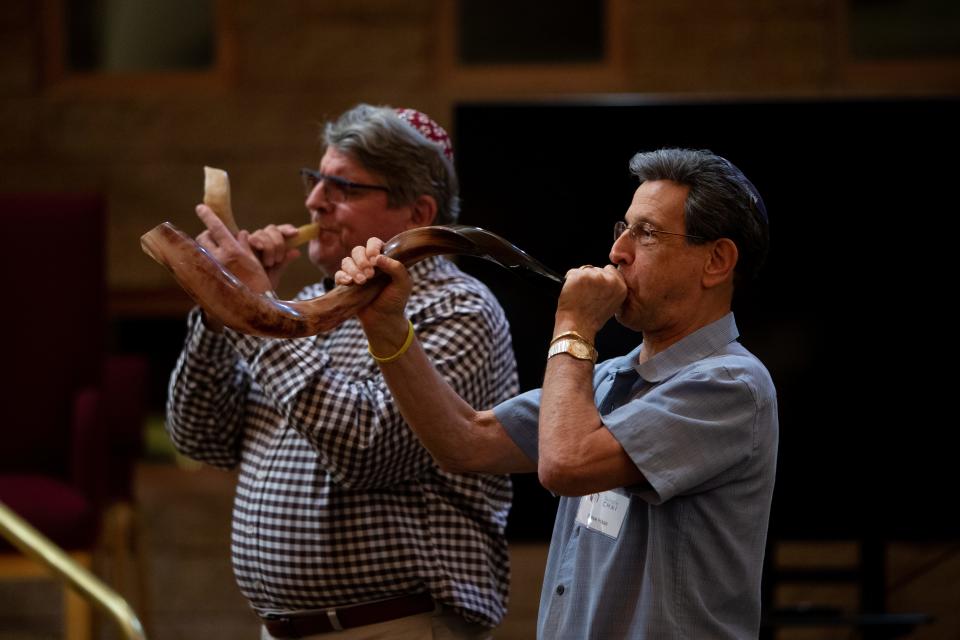What does this Phoenix-area rabbi want you to know about Rosh Hashana? Find out here
Friday evening is the beginning of the celebration of the Jewish New Year for Jews in Phoenix and beyond. Rosh Hashana, which marks the start of the faith's High Holy Days, continues through Sunday night.
The Arizona Republic spoke with Rabbi Andy Green of Scottsdale's Congregation Or Tzion about the deep significance of Rosh Hashana and some of its traditions and meaning.
Why is Rosh Hashana celebrated?
For believers, the holiday of Rosh Hashana commemorates the Earth's beginning, believed to have occurred 5,784 years ago, with its date determined by the lunar calendar. "Rosh Hashana is the anniversary of creation of the entire world. And this is a day for looking and examining all the different wonders that we experience in this world and being filled with a sense of gratitude as well," Green said.

The holiday is a time of reflection.
The Jewish people are called "to stand before God like sheep before a shepherd" to stand judgment, Green said. "We all come to celebrate our benevolent and loving monarch, to participate in the spectacle, to affirm our allegiance and to feel close to the wonder, glory and majesty of the divine."
More on Rosh Hashana: What if we took a chance to be kinder? Phoenix rabbi calls for reflection this Rosh Hashana
How is Rosh Hashana observed?
Special prayers announcing God as king make up part of the holiday's celebrations.
Symbolic foods are consumed by celebrants, Green explained. Most prominently, these include apples dipped in honey to draw in a "sweet new year," Green noted.
The blowing of a shofar, or a ram's horn, is used as "an alarm clock for us to remind us like, wake up, return, get better," Green said.
However, this year Rosh Hashana coincides with Shabbat, the Jewish day of rest, which begins at sunset on Friday and ends at sunset on Saturday. Rabbi Green's congregation will delay the sounding of the shofar on Saturday and instead perform the ritual of blasting the horn one hundred times on Sunday.
What do the faithful gain from Rosh Hashana?
The holiday's observers seek to mend relationships through forgiveness and to progress by acting differently than before, Green said.
Rosh Hashana allows the faithful to practice tefilla, which is Hebrew for prayer and introspection, and tzedakah, Hebrew for righteous giving of time and resources to support the vulnerable, Green explained.
"Through these mechanisms that we are encouraged to do, we're able to respond to the world in a more meaningful way."
What comes after Rosh Hashana?
The High Holy Days, commencing with Rosh Hashana, will conclude with Yom Kippur, a period of atonement in the Jewish faith. This year, Yom Kippur is observed from the evening of Sept. 24 to the evening of Sept. 25.
The focus is "on the idea of stepping back and reflecting on the year that's passed and the year to come, and thinking about all the ways in which we resolved to be better and all the ways in which we can grow," Green said.
Rush Hashana Food: 'We really go all out': How food ties this Phoenix teacher to her roots for Rosh Hashana
This article originally appeared on Arizona Republic: Here's what a Phoenix-area rabbi wants you to know about Rosh Hashana

